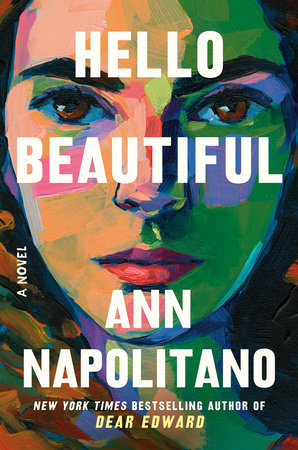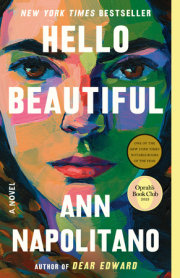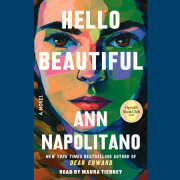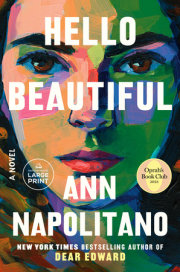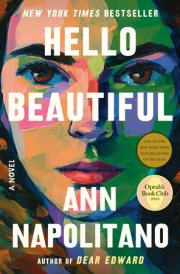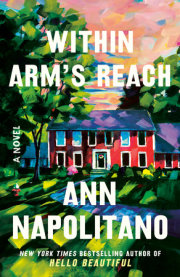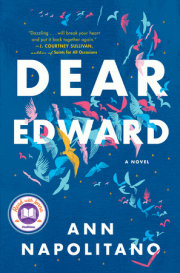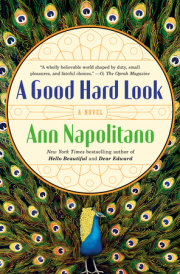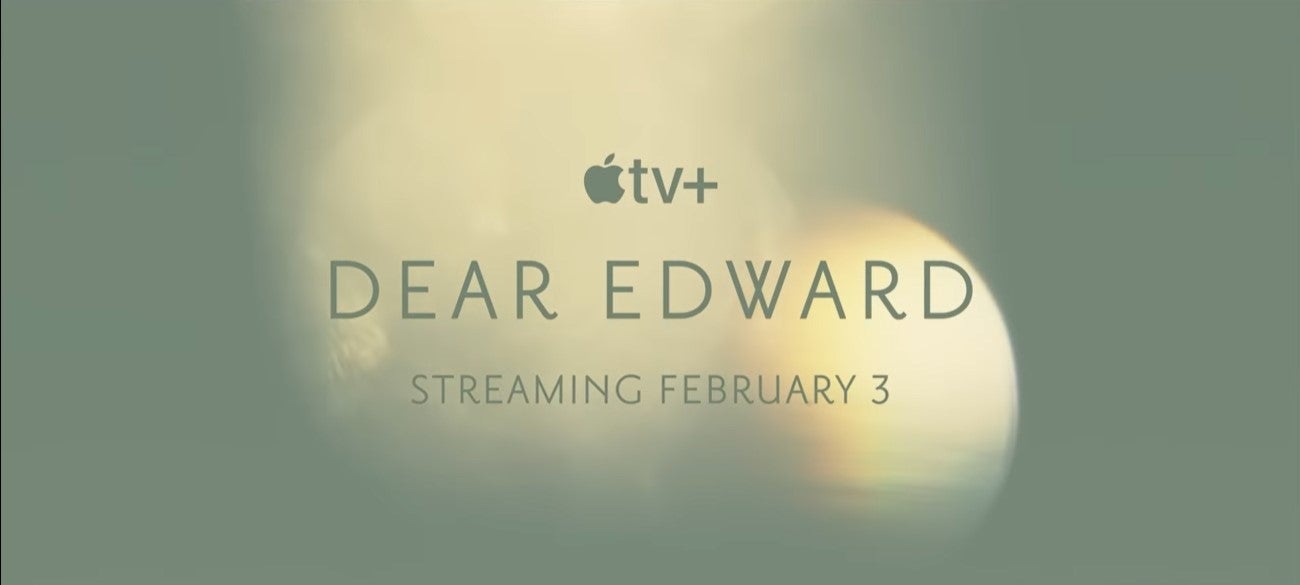William
February 1960–December 1978For the first six days of William Waters’s life, he was not an only child. He had a three-year-old sister, a redhead named Caroline after John F. Kennedy’s daughter. There were silent home movies of Caroline in which William’s father looked like he was laughing, a sight William never saw again. His father’s face looked open, and the tiny redhead, who pulled her dress over her face and ran in giggling circles in one of the movies, was apparently the reason. Caroline developed a fever and a cough while William and his mother were in the hospital after his birth. When they came home, the little girl seemed to be on the mend, but the cough was still bad, and when her parents went into her room to get her one morning, they found her dead in her crib.
William’s parents never mentioned Caroline while William was growing up. There was one photograph of her on the end table in the living room, which William traveled to occasionally in order to convince himself that he’d actually had a sister. The family moved to a navy-shingled house on the other side of Newton—a suburb of Boston—and in that house, William was an only child. His father was an accountant who worked long hours downtown. With his daughter gone, the man’s face never opened again. William’s mother smoked cigarettes and drank bourbon in the living room, sometimes alone and sometimes with a female neighbor. She had a collection of ruffled aprons that she wore while preparing meals, and she became agitated whenever one became stained or messy.
“Maybe you shouldn’t wear the aprons while you cook,” William said once, when his mother was red-faced and on the verge of tears over a dark blotch of gravy on the fabric. “You could tuck a dish towel in your belt instead, like Mrs. Kornet does.”
His mother looked at him as if he’d spoken in Greek. William said, “Mrs. Kornet, who lives next door? Her dish towel?”
From the age of five, William would walk to the nearby park most afternoons with a basketball, because basketball, unlike baseball or football, was a game he could play alone. There was a neglected outdoor court that usually had a hoop free, and he would shoot for hours, pretending he was a Celtics player. Bill Russell was his favorite, but to be Russell you needed someone else to block or defend against. Sam Jones was the best shooter, so William was usually Jones. He tried to imitate the guard’s perfect shooting form while pretending the trees that surrounded the court were cheering fans.
One afternoon when he was ten years old, he showed up at the court and found it occupied. Boys—maybe six of them, about William’s age—were chasing one another and a ball between the hoops. William started to back away, but one of the boys called, “Hey, wanna play?” And then, without waiting for William to answer: “You’re on the blue team.” Within seconds, William was swept into the game, his heart pounding in his chest. A kid passed him the ball, and he passed it right back, afraid to shoot and miss and be told he was terrible. A few minutes later, the game broke up abruptly because someone needed to get home, and the boys spilled off the court in different directions. William walked home, his heart still rattling in his chest. After that, the boys were occasionally on the court when William showed up with his ball. There was no discernible schedule to their appearances, but they always waved him into the game as if he were one of them. This never stopped being shocking to William. Kids and adults had always looked past him, as if he were invisible. His parents hardly looked at him at all. William had accepted all of this and thought it was understandable; he was, after all, boring and forgettable. His primary characteristic was pallor: He had sand-colored hair, light-blue eyes, and the very white skin shared by people of English and Irish descent. On the inside, William knew, he was as uninteresting and muted as his looks. He never spoke at school, and no one played with him. But the boys on the basketball court offered William a chance to be part of something for the first time, without having to talk.
In fifth grade, the gym teacher at his elementary school said, “I see you out there shooting baskets in the afternoons. How tall is your father?”
William stared at the man blankly. “I’m not sure. Normal height?”
“Okay, so you’ll probably be a point guard. You need to work on your handle. You know Bill Bradley? That gawky guy on the Knicks? When he was a kid, he taped cardboard to his glasses so he couldn’t look down, couldn’t see his feet. And then he dribbled up and down the sidewalk wearing those glasses. He looked crazy, no doubt, but his handle got real tight. He has a perfect feel for how the ball will bounce and how to find it without looking.”
William sprinted home that afternoon, his entire body buzzing. This was the first time a grown-up had looked directly at him—noticed him, and noticed what he was doing—and the attention threw him into distress. William had a sneezing fit while he was digging for a pair of toy glasses in the back of his desk drawer. He visited the bathroom twice before he carefully taped rectangular pieces of cardboard to the bottom of the glasses.
Whenever William felt sick or odd, he worried he was going to die. At least once a month he would crawl under his covers after school, convinced he was terminally ill. He wouldn’t tell his parents, because illness wasn’t permitted in his house. Coughing, in particular, was treated as a horrific betrayal. When William had a cold, he allowed himself to cough only in his closet with the door closed, his face muffled by the row of hanging button-down shirts he had to wear for school. He was aware of that familiar worry tickling his shoulders and the back of his head while he ran outside with the ball and glasses. But William had no time for illness now, no time for fear. This felt like the final click of his identity falling into place. The boys on the court had recognized him, and the gym teacher had too. William might have had no idea who he was, but the world had told him: He was a basketball player.
The gym teacher gave him additional tips that allowed William to develop more skills. “For defense: Push kids away with your shoulder and your butt. The refs won’t call those as fouls. Do sprints: Get a quick first step and beat your man off the dribble.” William worked on his passing too, so he could feed the ball to the best players in the park. He wanted to keep his place on the court, and he knew that if he made the other boys better, he had value. He learned where to run to provide space for the shooters to cut in to. He set screens so they could take their favorite shots. The boys slapped William on the back after a successful play, and they always wanted him on their side. This acceptance calmed some of the fear William carried inside him; on the basketball court, he knew what to do.
By the time William entered high school, he was a good-enough player to start for the varsity team. He was five foot eight and played point guard. His hours of practice with the glasses had paid off; he was by far the best dribbler on the team, and he had a nice midrange jumper. He’d worked on his rebounding, which helped offset his team’s turnovers. Passing was still William’s best skill, and his teammates appreciated that they had better games when he was in the lineup. He was the only freshman on the varsity team, and so when his older teammates drank beer in the basement of whoever’s parents were willing to look the other way, William was never invited. His teammates were shocked—everyone was shocked—when, in the summer after his sophomore year, William grew five inches. Once he started growing, his body seemed unable to stop, and by the end of high school he was six foot seven. He couldn’t eat enough to keep up with his growth and became shockingly thin. His mother looked frightened when he lurched into the kitchen every morning, and she’d hand him a snack whenever he passed nearby. She seemed to think his skinniness reflected badly on her, because feeding him was her job. His parents sometimes came to his basketball games, but at odd intervals, and they sat politely in the stands, appearing not to know anyone on the court.
His parents weren’t there for the game when William went for a rebound and was shoved in the air. His body twisted while he fell, and he landed awkwardly on his right knee. The joint absorbed all of the impact, and all of his weight. William heard his knee make a noise, and then a fog descended. His coach, who seemed to have only two registers—shouting and mumbling—was yelling in his ear: “You okay, Waters?” William generally responded to both the shouts and the mumbles by phrasing everything he said as a question; he never felt sure enough to lay claim to a statement. He cleared his throat. The fog around him, and inside him, was dense and laced with pain that was radiating from his knee. He said, “No.”
Copyright © 2023 by Ann Napolitano. All rights reserved. No part of this excerpt may be reproduced or reprinted without permission in writing from the publisher.





